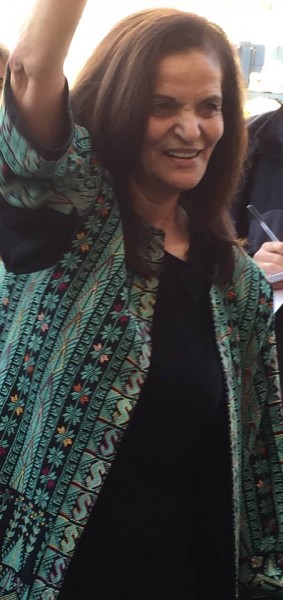Chicago, IL – Federal prosecutor Jonathan Tukel filed a brief with the U.S. Court of Appeals for the Sixth Circuit, July 8, opposing Rasmea Odeh’s move to overturn her conviction and sentencing on immigration charges. Tukel argues that the lower court was right to deny Odeh her full defense, including its decisions to bar the testimony of a torture expert, to restrict Rasmea’s own testimony, and to allow documents obtained via torture by the Israeli military.
At trial, Odeh testified that if she had understood the immigration forms to be asking about what the Israelis did to her in Palestine, she would have volunteered that information. Renowned torture expert Dr. Mary Fabri was prepared to testify that survivors of torture like Rasmea, living with Post-Traumatic Stress Disorder (PTSD), will unintentionally and automatically “narrow their focus to keep painful memories back.”
Tukel’s brief takes a bizarre turn when it supports the exclusion of Dr. Fabri’s testimony because, as the government claims, it would undermine Rasmea’s defense and “contradict” her testimony. Tukel’s refusal to understand and accept the testimony of this mental health professional is just another example of the prosecution’s callous disregard for Odeh’s story as a torture survivor.
Odeh’s appeal argued that a jury could only give her a fair hearing if they could hear testimony to explain how her chronic condition could have affected her thinking. Allowing testimony about the torture she survived at the hands of military occupation soldiers would have put the crimes of Israel on the record, and supported the defense’s argument that she never knowingly made false statements to immigration officials. That is why the government wants Odeh’s defense silenced.
The government’s brief also defends the use of documents from the Israeli military court, arguing that they “were no different than any other business record which is offered to prove a historical fact.” But in reality, there was never any dispute over whether Odeh had been imprisoned by the Israelis, so the prosecution did not need documents produced from ‘evidence’ gained by torture to make its case. The only advantage to using them was to portray Odeh as dangerous in front of the jury, which, as the defense has claimed, was clearly prejudicial. Ignoring the weeks of unspeakable torture that produced these documents is another shameful case of the government trying to cover up the crimes of the occupation, and especially the crimes against Odeh.
As many times as the government brief called Rasmea a liar, Tukel is the one covering up his support of Israel and its crimes against her and the Palestinian people as a whole. This case should never have gone to trial, and because Odeh was refused the right to a full defense, the conviction should be thrown out. She was prosecuted by the U.S. government only because she is Palestinian, and only because she has organized for decades for Palestinian liberation and self-determination, the Right of Return, and an end to U.S. funding of Israeli occupation.
The fight for #Justice4Rasmea continues. Odeh’s defense team will respond to Tukel’s brief by July 22. Oral arguments on the appeal are expected to be heard in the Sixth Circuit in Cincinnati sometime in September. Odeh’s supporters are mobilizing to be there.
